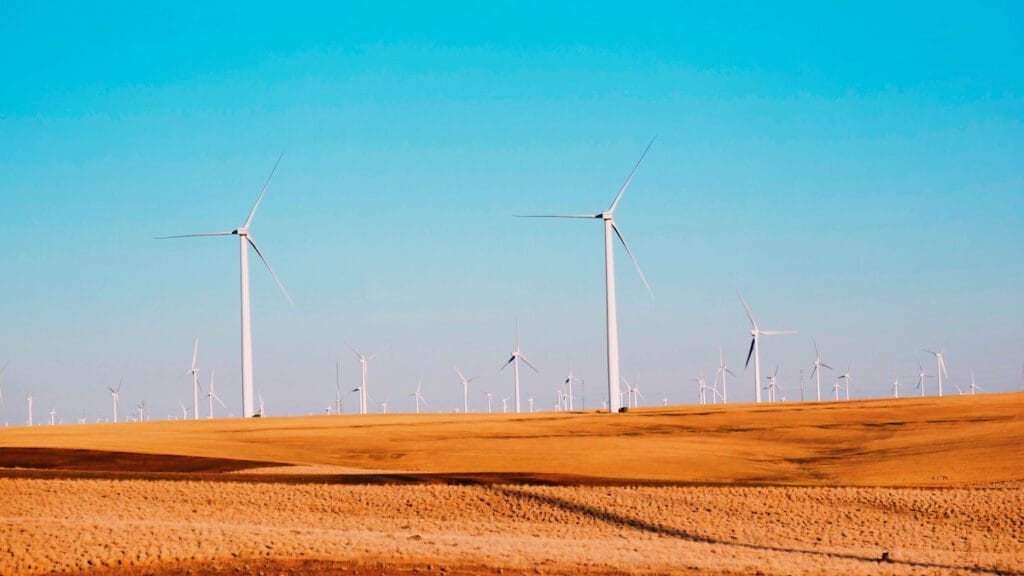Morocco is accelerating its energy transition by entering into advanced negotiations with three leaders from the United Arab Emirates – Masdar, AMEA Power, and TAQA – to develop significant wind projects in the Sahara Desert. This strategic partnership, estimated at $10 billion, could add up to 5,000 MW of renewable capacity to the national grid.
### The Moroccan Sahara, a New Epicenter of Green Ambitions
The Kingdom’s wind potential is well known, but the Sahara is becoming the new frontier for development, with its exceptional natural conditions: regular winds averaging over 8.4 m/s, favorable topography, and low population density. These factors make it an ideal area for the establishment of large-scale wind farms, with few land use conflicts.
### Objective 2030: 52% Renewable Electricity
The agreement under discussion is part of the national energy strategy aimed at achieving 52% of electricity production from renewable sources by 2030. Following solar projects like Noor Ouarzazate, Morocco is diversifying its mix with onshore and offshore wind, relying on international partnerships to accelerate deployments.
### Expected Industrial and Social Benefits
In addition to energy benefits, the initiative promises a ripple effect on the local economy: creation of direct and indirect jobs, mobilization of Moroccan suppliers for the manufacturing of components (blades, towers, transformers), as well as the development of related services (maintenance, engineering, logistics).
### A Strategic Atlantic Coast
With wind speeds ranging from 7.5 to 11 m/s from Tangier to Dakhla, the Moroccan Atlantic coast is among the most favorable in the world for wind energy, according to international standards. This potential is now set to be exploited on an industrial scale, reinforcing Morocco’s role as a renewable energy hub serving Africa and Europe.
### A Diplomatic and Economic Lever
Beyond the energy aspect, this partnership with the Emirates is also part of a geostrategic dynamic, strengthening South-South relations and positioning Morocco as a key player in the global energy transition. If negotiations succeed, this project will mark a turning point in the Kingdom’s industrial history, combining energy sovereignty, regional development, and high-level international cooperation.


